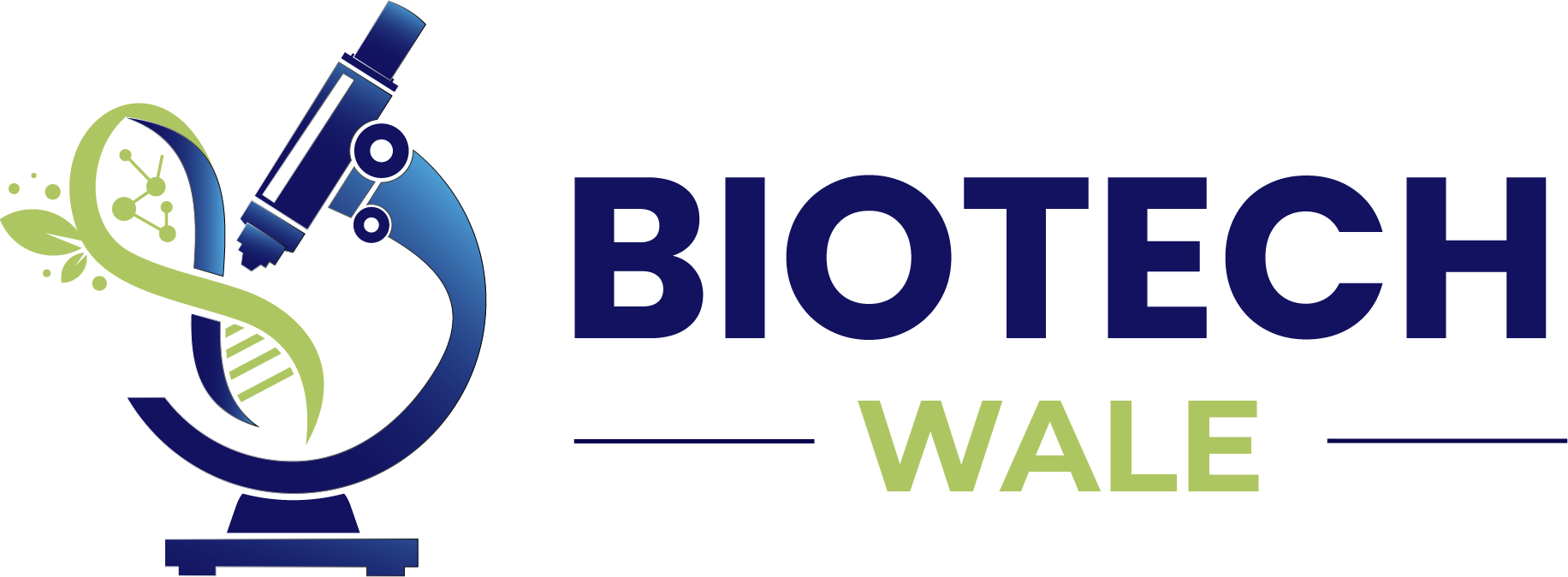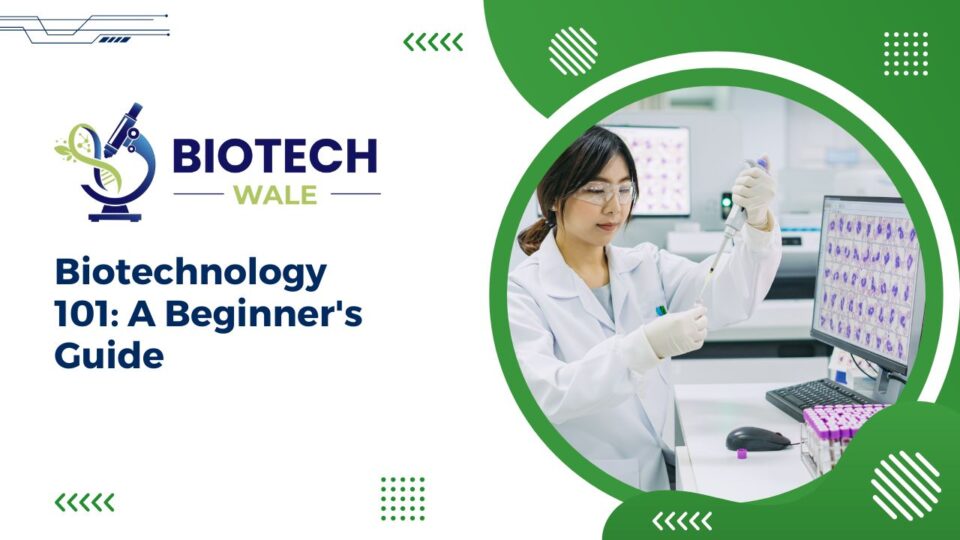Introduction to Biotechnology
Welcome to the fascinating world of biotechnology, where science meets innovation to shape the future! Whether you’re a curious beginner or looking to deepen your knowledge, this beginner’s guide will take you on an exciting journey through the realms of biology, technology, and everything in between. Get ready to explore how biotechnology has revolutionized various industries and impacted our lives in ways we never thought possible. Let’s dive in!
The History and Evolution of Biotechnology
Biotechnology has a rich history that dates back centuries, with its roots tracing back to the practices of early civilizations who used fermentation techniques to produce food and drink. Over time, the field has evolved significantly, incorporating advancements in various scientific disciplines such as genetics, molecular biology, and biochemistry.
The modern era of biotechnology began in the 1970s with the development of recombinant DNA technology, which allowed scientists to manipulate genetic material for various applications. This breakthrough paved the way for revolutionary discoveries like genetically modified organisms (GMOs), gene editing tools like CRISPR-Cas9, and personalized medicine.
As technology continues to advance at a rapid pace, the future of biotechnology holds immense potential for addressing global challenges in healthcare, agriculture, environmental conservation, and more. With ongoing research and innovation driving progress in this field, it’s exciting to envision what new possibilities lie ahead in shaping our world through biotechnology.
Applications of Biotechnology in Various Fields
Biotechnology plays a pivotal role in various fields, revolutionizing how we approach challenges and opportunities. In agriculture, genetically modified crops have enhanced yields, reduced pests, and increased food security. The medical field benefits from biotech advancements through personalized medicine, gene therapy, and innovative treatments for diseases like cancer. Environmental conservation sees the use of bioremediation to clean up pollutants and restore ecosystems.
In industrial applications, enzymes produced through biotechnology are used in manufacturing processes to increase efficiency and reduce waste. The field of forensics utilizes DNA analysis techniques for accurate identification in criminal investigations. Biotechnology even extends into the realm of biofuels production to address sustainable energy needs.
These diverse applications demonstrate the versatility and potential impact of biotechnology across multiple sectors globally.
Types of Biotechnology
When it comes to biotechnology, there are various types that play a crucial role in advancing scientific research and innovation. One type is red biotechnology, which focuses on medical applications like pharmaceuticals and genetic testing. Another type is white biotechnology, which involves industrial processes such as the production of chemicals and biofuels using biological systems.
Green biotechnology is yet another type that involves agricultural advancements like genetically modified crops for increased yield and resistance to pests. Blue biotechnology explores marine environments for applications in areas such as aquaculture and marine biomining. Gray biotechnology applies principles of environmental science to manage waste in eco-friendly ways.
Each type of biotechnology offers unique opportunities for growth and development across different industries, showcasing the diverse potential of this field.
Career Options in Biotechnology
Are you intrigued by the vast potential of biotechnology and considering a career in this dynamic field? Biotechnology offers a wide range of exciting career options for those passionate about science and innovation.
One path you could explore is becoming a research scientist, where you can work on groundbreaking projects to develop new drugs, therapies, or agricultural solutions. Alternatively, you might choose a career in bioinformatics, using data analysis to unlock the secrets hidden within biological information.
If you have a flair for business and communication, roles in biotech sales and marketing could be your calling. You would be responsible for promoting cutting-edge products and technologies to customers around the globe.
For those interested in regulatory affairs, ensuring that biotechnological advancements meet legal standards is crucial. Regulatory affairs specialists play a key role in navigating the complex landscape of laws and guidelines governing biotech products.
No matter which path you choose, pursuing a career in biotechnology promises an exciting journey filled with opportunities for growth and impact on society.
Key Concepts and Techniques in Biotechnology
Key concepts and techniques in biotechnology play a vital role in advancing scientific research and innovation. One key concept is genetic engineering, which involves modifying an organism’s DNA to achieve desired traits or outcomes. This technique has revolutionized fields like medicine, agriculture, and environmental science.
Another important concept is fermentation, where microorganisms are used to produce various products like antibiotics, vaccines, and biofuels. Bioprocessing techniques involve using living organisms or their components to create valuable products on an industrial scale.
Molecular cloning allows scientists to make copies of specific genes for further study or manipulation. Polymerase chain reaction (PCR) is a technique used to amplify DNA segments for analysis. These are just a few examples of the many key concepts and techniques that drive progress in biotechnology every day.
Ethical Considerations in Biotechnology
When delving into the realm of biotechnology, it’s crucial to consider the ethical implications that come hand in hand with scientific advancements. The manipulation of genes, cloning, and genetic engineering raise important questions about the boundaries of human intervention in nature.
One key concern is ensuring that biotechnological research respects the autonomy and rights of individuals involved, including informed consent and privacy protection. Additionally, issues related to equity and access to biotechnological innovations must be carefully addressed to prevent further disparities in healthcare and technology.
Moreover, as biotechnology continues to progress rapidly, there is a pressing need for ongoing dialogue between scientists, policymakers, ethicists, and the general public. This collaboration is essential for establishing guidelines that uphold ethical standards while fostering innovation responsibly.
By keeping these ethical considerations at the forefront of discussions surrounding biotechnology advancements, we can strive towards a future where scientific progress goes hand in hand with moral integrity.
Future Possibilities and Advancements in Biotechnology
As we look towards the future of biotechnology, the possibilities and advancements seem endless. One exciting area is the development of personalized medicine, where treatments are tailored to an individual’s genetic makeup for more effective results.
Another promising prospect is the use of gene editing technologies like CRISPR-Cas9 to modify genes and potentially cure genetic diseases. This groundbreaking technology has already shown great potential in various research studies and clinical trials.
Biotechnology also plays a crucial role in sustainable agriculture through genetically modified crops that can resist pests, diseases, and harsh environmental conditions. This innovation not only ensures food security but also reduces the need for harmful pesticides.
In addition, biotechnology continues to pave the way for biofuel production from renewable sources like algae or agricultural waste. These alternative energy solutions hold promise in reducing our dependence on fossil fuels and combating climate change.
With ongoing research and technological advancements, the future of biotechnology holds immense potential for revolutionizing healthcare, agriculture, energy production, and environmental sustainability. Exciting times lie ahead as we continue to explore these new frontiers in science.
Resources for Learning More about Biotechnology
Are you eager to dive deeper into the world of biotechnology? There are numerous resources available to quench your thirst for knowledge in this fascinating field. Online platforms like Coursera, edX, and Khan Academy offer a wide range of courses on biotechnology, catering to beginners and advanced learners alike.
For those who prefer reading, textbooks such as “Introduction to Biotechnology” by Thieman and Palladino or “Biotechnology for Beginners” by Reinhard Renneberg provide comprehensive insights into the subject. Scientific journals like Nature Biotechnology and Trends in Biotechnology also offer cutting-edge research articles and reviews.
If you enjoy visual learning, YouTube channels like Amoeba Sisters Biology or CrashCourse Biology have engaging videos that simplify complex biotechnological concepts. Additionally, attending workshops, conferences, or webinars can provide hands-on experience and networking opportunities within the biotech community.
Remember that continuous learning is key in the ever-evolving field of biotechnology. Stay curious and explore these resources to expand your understanding of this dynamic discipline!
Conclusion
As we wrap up this beginner’s guide to biotechnology, it is evident that the field holds immense potential for shaping the future. From its fascinating history and diverse applications in various industries to ethical considerations and career opportunities, biotechnology offers a world of possibilities.
With key concepts like genetic engineering, bioinformatics, and synthetic biology paving the way for groundbreaking advancements, the future of biotechnology looks brighter than ever. As researchers continue to push boundaries and explore new frontiers, we can expect even more exciting developments in areas such as personalized medicine, sustainable agriculture, and environmental conservation.
Whether you are a budding scientist eager to delve into the world of biotechnology or simply curious about this i
Innovative field, there are endless resources available to deepen your knowledge and understanding. By staying informed and engaged with the latest trends and discoveries in biotechnology, you can be part of a transformative journey that has the power to revolutionize our world.
So go ahead – embrace the wonders of biotechnology and embark on an inspiring voyage towards a future where science meets ingenuity in ways we have yet to imagine. The possibilities are limitless!





Average Rating